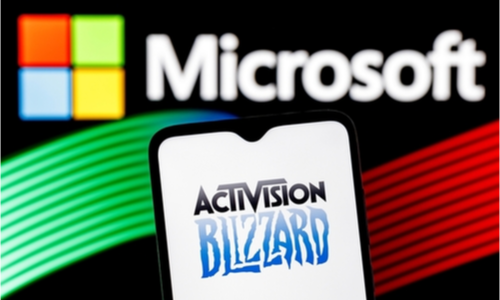
In a renewed effort to reverse the legal approval granted to Microsoft’s acquisition of Activision Blizzard, the U.S. Federal Trade Commission (FTC) is set to argue before a three-judge appeals court panel in California on Wednesday.
The FTC contends that the federal judge’s decision to uphold Microsoft’s $69 billion deal, which closed on October 13, was based on a misinterpretation of competition law, reported Reuters.
The legal battle, initiated by the FTC in December 2022, aims to challenge the historic merger between Microsoft and the renowned “Call of Duty” maker, Activision Blizzard. Despite the approval from British regulators, the FTC remains steadfast in its belief that the acquisition poses serious competitive concerns. The Biden administration has been actively pushing against mergers and price hikes that could impact consumers across various industries.
The central argument from the FTC revolves around the accusation that Microsoft could potentially utilize Activision’s popular gaming titles to stifle competition, particularly in the Xbox console market and the rapidly expanding subscription and cloud gaming sectors. The regulatory body is set to assert that the lower-court judge imposed an excessively high standard, requiring the FTC to prove the deal’s anticompetitive nature rather than merely demonstrating significant competitive concerns.
Related: FTC To Appeal Decision Allowing Microsoft’s Acquisition Of Activision Blizzard
One of the key points of contention is the judge’s reliance on agreements between Microsoft and its rivals for game distribution as evidence that the merger would not negatively impact competition. The FTC argues that this reliance was misplaced, asserting that the judge failed to recognize the broader implications for market dynamics.
Microsoft, on the other hand, is poised to defend the legality of its acquisition, contending that the FTC has not substantiated claims of the judge’s error in her ruling. Additionally, Microsoft will argue that the FTC has failed to demonstrate any incentive for the tech giant to withhold the blockbuster game “Call of Duty” from competing gaming platforms.
This legal tussle comes after the FTC’s initial lawsuit filed in December 2022, which claimed that Microsoft’s acquisition of Activision Blizzard would result in a monopolistic control over the gaming industry. However, a federal judge in California dismissed the case in July, ruling that the FTC had not presented a compelling case.
The three-judge appeals court panel assigned to this case includes Daniel Collins and Danielle Forrest, nominated by former President Donald Trump, and Jennifer Sung, nominated by President Joe Biden. As the FTC faces an uphill battle, having lost in the lower court and with the EU and Britain having already approved the deal, the outcome of this latest legal endeavor remains uncertain.
Source: Reuters
Featured News
Big Tech Braces for Potential Changes Under a Second Trump Presidency
Nov 6, 2024 by
CPI
Trump’s Potential Shift in US Antitrust Policy Raises Questions for Big Tech and Mergers
Nov 6, 2024 by
CPI
EU Set to Fine Apple in First Major Enforcement of Digital Markets Act
Nov 5, 2024 by
CPI
Six Indicted in Federal Bid-Rigging Schemes Involving Government IT Contracts
Nov 5, 2024 by
CPI
Ireland Secures First €3 Billion Apple Tax Payment, Boosting Exchequer Funds
Nov 5, 2024 by
CPI
Antitrust Mix by CPI
Antitrust Chronicle® – Remedies Revisited
Oct 30, 2024 by
CPI
Fixing the Fix: Updating Policy on Merger Remedies
Oct 30, 2024 by
CPI
Methodology Matters: The 2017 FTC Remedies Study
Oct 30, 2024 by
CPI
U.S. v. AT&T: Five Lessons for Vertical Merger Enforcement
Oct 30, 2024 by
CPI
The Search for Antitrust Remedies in Tech Leads Beyond Antitrust
Oct 30, 2024 by
CPI